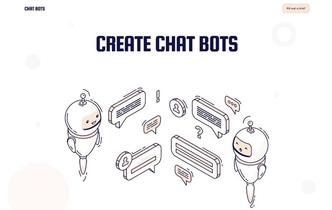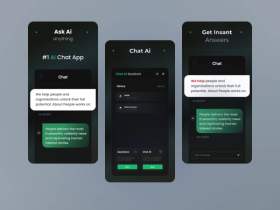In an age of digital technologies whose impacts are rapidly transforming the core aspects of our lives, machine learning is emerging as an integral part of this evolution. From autonomous cars to personalized recommendations on your streaming service, machine learning techniques are permeating our modern reality, redefining the way we interact with technology and the world around us.
The statistics published by Allied Market Research predicted the global cognitive computing market to grow to $13.7 billion by 2025 and Fortune Business Insights researched that the size of the global machine learning market was estimated at $19.20 billion in 2022. Besides, it is expected to increase from $26.03 billion in 2023 to a level of $225.91 by 2030.
Results such as these just show how much this technology has been growing steadily and what an effect it is leaving on our world. Such forecasts and statistics speak about such enormous opportunities for this technology and so many areas that are being affected constantly by its growth
So, we decided to update this article and make it more useful. In today's topic, we will go deeper in the very meaning of that term “machine learning” and how you can use this machine learning in your application. And at the end of this article, there is a technological stack for you to implement machine learning in your application and also experience of us on that purpose.
Let's start!
🤖 Machine Learning Definition
Machine Learning stands as a subset of artificial intelligence, crafting algorithms through the discovery of concealed patterns within datasets. These algorithms then predict outcomes for novel analogous data, evading the need for explicit coding in each instance.
Conventional Machine Learning merges data with statistical tools, prognosticating outcomes that furnish actionable insights.
The applications of Machine Learning are far-reaching: encompassing image and speech recognition, natural language processing, recommendation systems, fraud detection, portfolio optimization, and automated tasks. This technology is even harnessed to empower autonomous vehicles, drones, and robots, augmenting their adaptability and intelligence in dynamic surroundings.
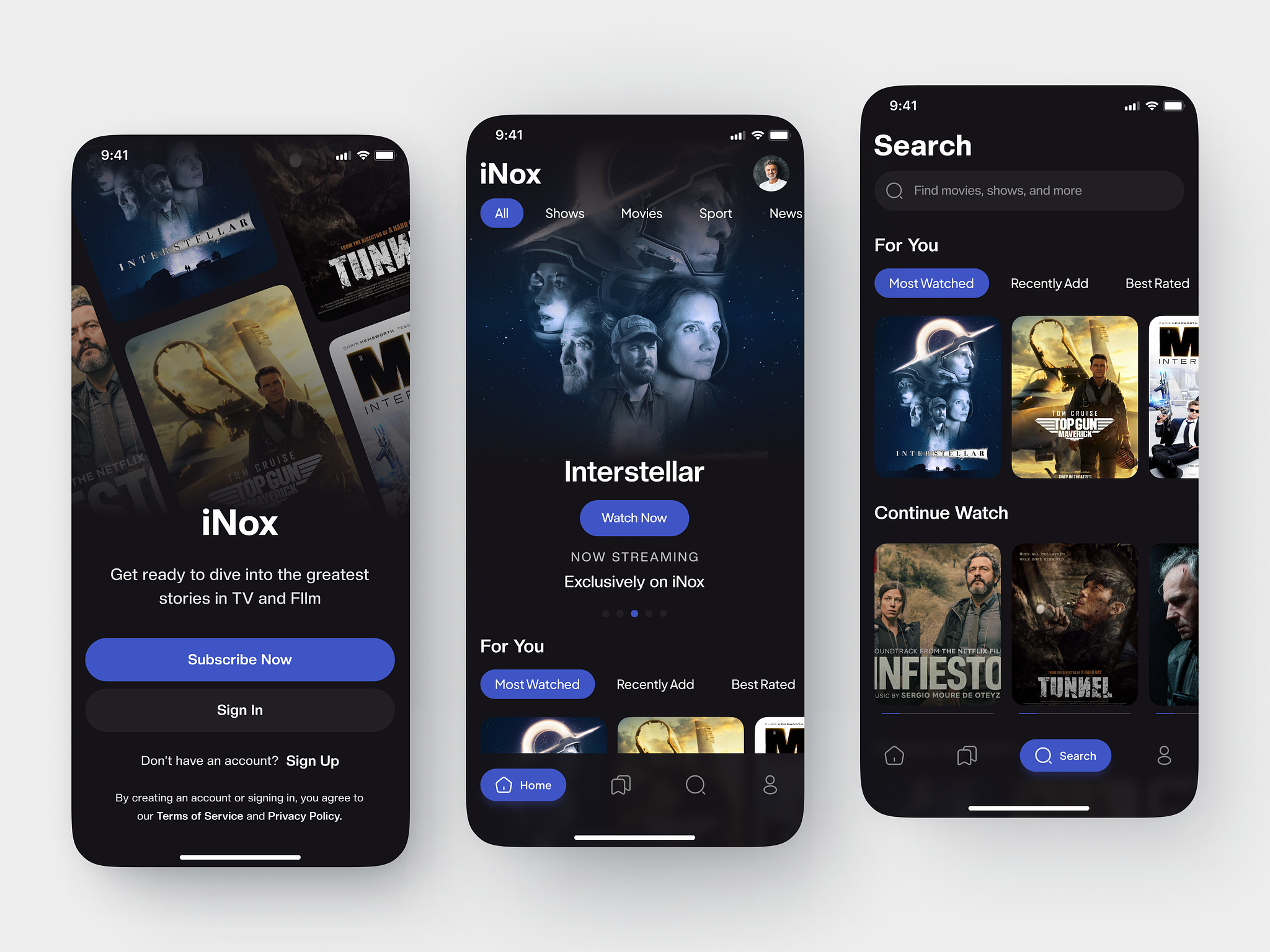
The recommendations on our favorite streaming service are powered by machine learning algorithms that analyze our viewing habits and preferences.
(image by Rizal🔥)
A quintessential task of Machine Learning is delivering personalized recommendations. Recommender systems, a prevalent domain of machine learning, employ historical data to offer tailored suggestions to users. In the realm of Netflix, this system employs collaborative and content-based filtering techniques to propose movies and TV shows based on the viewer's past choices, ratings, and genre preferences.
Evolution of Machine Learning
Machine learning today differs significantly from its earlier iterations due to advancements in computing technology. It originated from the notion that computers can learn autonomously from data, without explicit programming. Researchers exploring artificial intelligence sought to ascertain whether computers could derive knowledge from information.
Machine learning technology has been present since 1952. In the past decade, it has progressed significantly, undergoing pivotal transitions.
A crucial development during the 1990s was the rise of data-driven machine learning. This approach centered on employing sizable datasets to train models and unveil patterns. It represented a shift towards empirical and statistical methods.
Between 1995 and 2005, the focus centered on natural language processing, search algorithms, and information retrieval. Applications in these domains enhanced language comprehension, search engine efficiency, and information organization.
Neural networks, popular in the 1980s, mimic the human brain's structure and function. Their resurgence around 2005, known as deep learning, revolutionized domains like image recognition.
While several machine learning algorithms have existed for years, the recent ability to automate intricate mathematical calculations on extensive datasets in a swift, repetitive manner is a recent innovation.
Types of Machine Learning
Machine learning comes in various flavors, each tailored to specific goals:
Supervised Machine Learning: In this approach, algorithms are fed labeled datasets, learning to predict outcomes based on input features. It's like teaching a computer to recognize patterns by showing it examples of those patterns.
Unsupervised Machine Learning: Here, algorithms delve into unlabeled data, seeking hidden structures and relationships. Think of it as allowing a computer to explore and categorize data on its own.
Reinforcement Learning: Similar to training a pet, this approach involves rewarding machines for correct actions and adjusting their behaviors through trial and error. It's how systems learn to navigate complex environments.
Who's using it?
By extracting insights from big data, often in real-time, various industries enhance efficiency and gain competitive edges. Here are some examples:
-
Financial Services: Machine learning serves dual purposes: uncovering crucial data insights and preventing fraud. This technology identifies investment prospects and aids investors in making strategic trading decisions. Furthermore, machine learning identifies high-risk client profiles and utilizes cyber surveillance to spot fraud indicators.
-
Government: Machine learning detects fraud and curtails the risks of identity theft.
-
Healthcare: Wearable devices with machine learning and sensors provide real-time patient health assessments. This technology assists medical experts in scrutinizing data for patterns and signals that could lead to enhanced diagnoses and treatment plans.
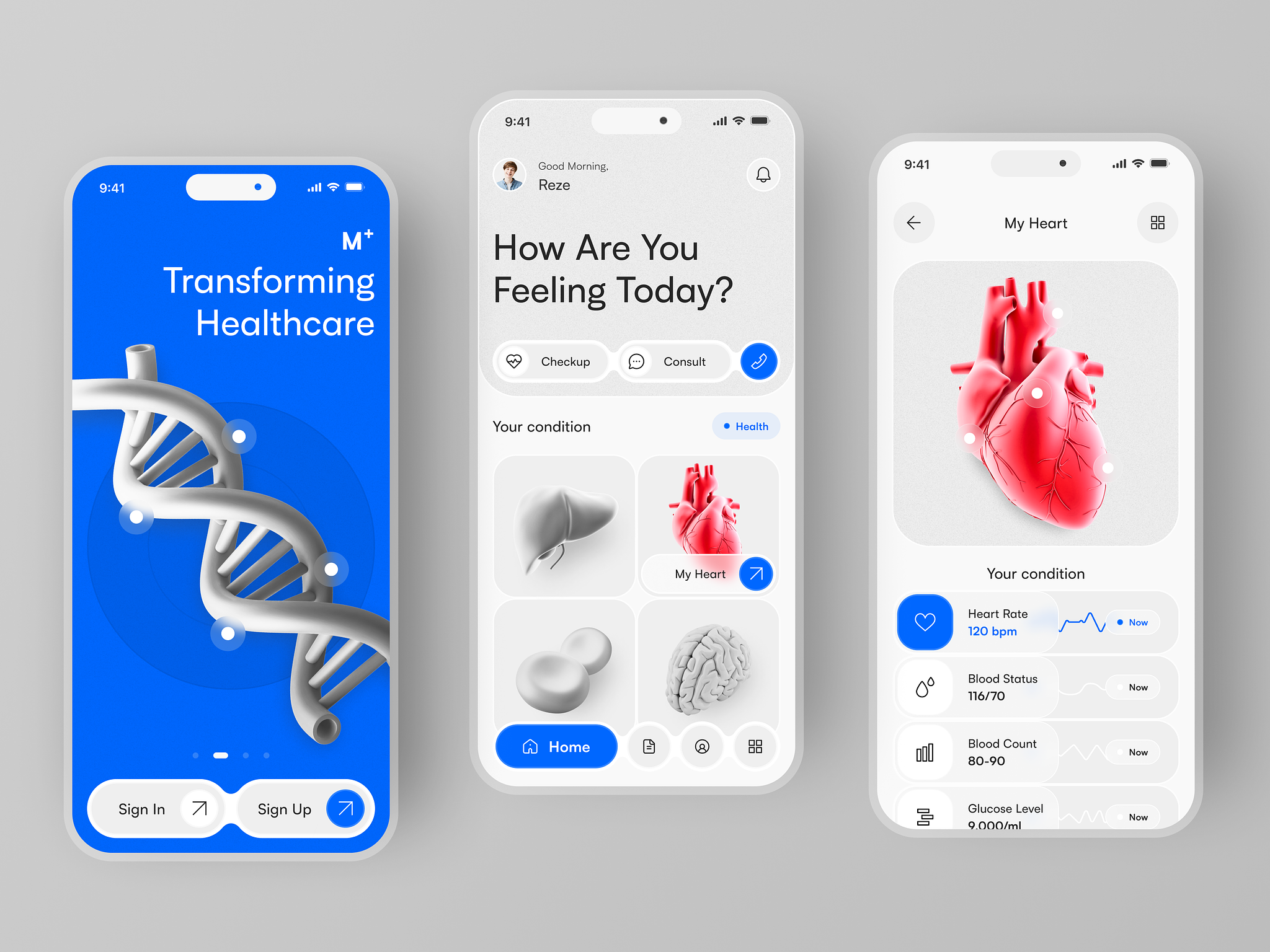
A healthcare app using machine learning is able to constantly learn and adapt to new data, refining its predictions and recommendations over time.
(image by Adhiari Subekti)
-
Retail: Utilizing machine learning to collect, scrutinize, and personalize shopping experiences, marketing endeavors, pricing strategies, merchandise planning, and customer insights.
-
Oil and Gas: From discovering new energy sources to refining refinery sensor predictions, machine learning optimizes oil distribution for efficiency and cost-effectiveness.
-
Transportation: Efficiency enhancement in transportation relies heavily on data analysis to discern patterns and anticipate issues. Machine learning helps to improve routes, predict challenges, and mitigate traffic congestion.
In summary, machine learning's impact spans diverse sectors, enabling data-driven insights that revolutionize decision-making, streamline processes, and foster innovation.
Difference Between ML and AI
Machine Learning (ML) and Artificial Intelligence (AI) are closely related concepts, but they refer to different aspects of technology and problem-solving. Let's figure it out:
Machine Learning is a subset of AI that focuses on the development of algorithms and models that enable computers to learn from and make predictions or decisions based on data.
Artificial Intelligence is a broader concept that refers to the development of machines or systems that can perform tasks that typically require human intelligence.
In essence, machine learning is a specific strategy within the field of AI that entails training models on data to make predictions or judgments, whereas AI comprises the larger objective of building robots that may demonstrate human-like intelligence. The majority of the most recent developments in AI have been made possible by machine learning, a foundational technique, although it only makes up a small part of the overall AI picture.
For more information about this, you can learn from IBM Technology video👇
For those looking to implement AI in app functionalities, understanding the basics of machine learning is crucial. Learn more about how this ties into AI with our comprehensive guide on how to integrate AI into an app.
📱 How You Can Use Machine Learning in Your Mobile App?
Now let's move on to the most interesting. How can we use machine learning in mobile applications?
🤳 Customization: let the user feel special
One of the main benefits of machine learning in mobile apps is personalization. By using machine learning algorithms, you can create a customized and tailored experience for each user. This allows you to offer relevant content, recommendations, and advertisements based on the user's interests and behavior.
Such an individual approach has several advantages:
- it helps users to get the most relevant and alluring content according to their interests;
- your users will feel like your app is really communicating with them;
- posting a targeted advertisement, which is also the part of customization, increases the probability of making a deal.
🔍 Make searching faster and easier
Machine learning can significantly improve the search and discovery experience in your mobile app. By analyzing user behavior, search history, and preferences, you can provide more accurate and relevant search results.
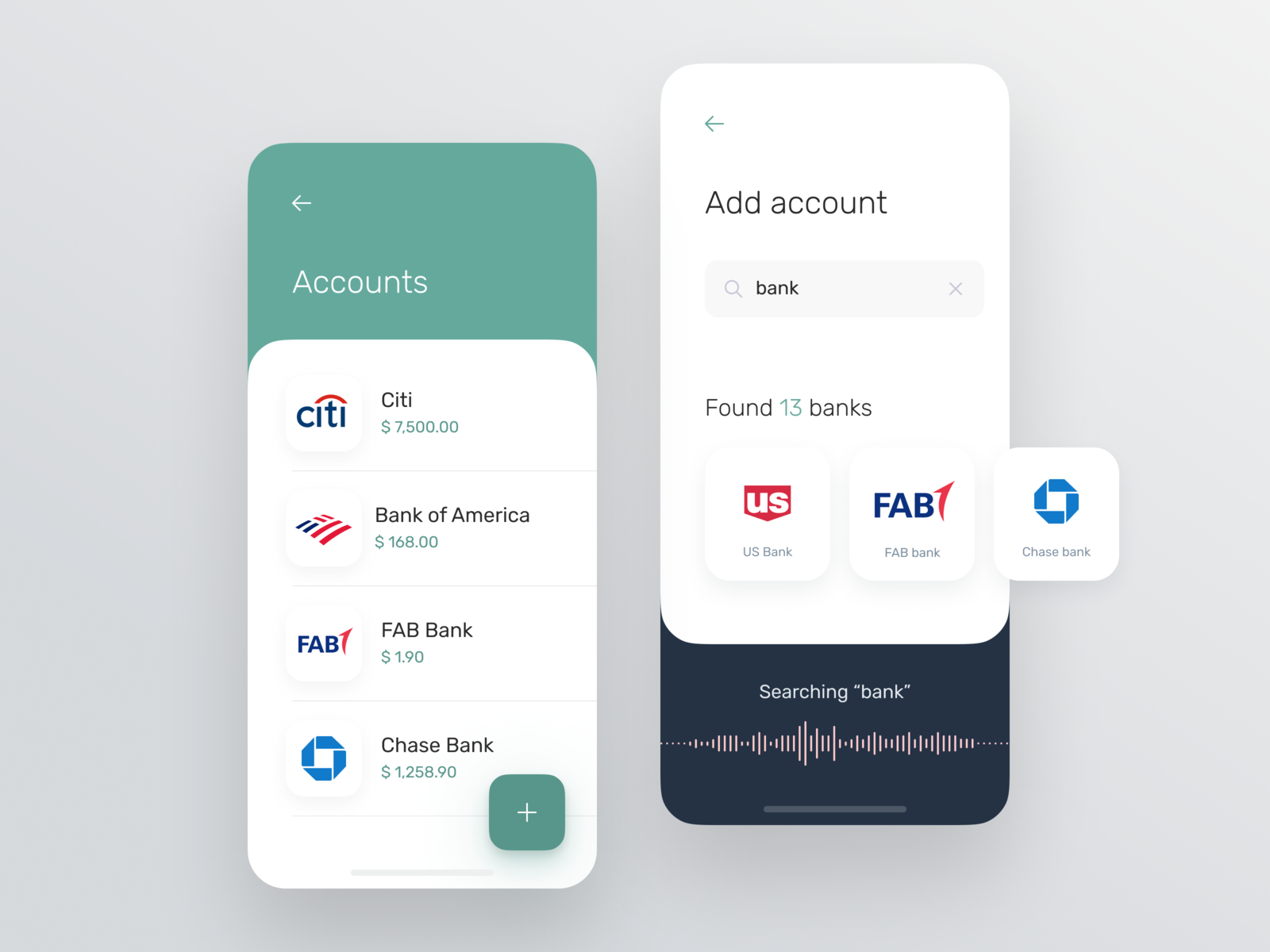
Voice recognition, an innovative feature driven by machine learning, further enhances this convenience by enabling users to perform searches using natural language commands.
(image by Brave Wings 🔥)
You can also incorporate features like voice search, spelling correction, and related suggestions to make the search process faster and more intuitive for users.
💸 Rising sales with machine learning in e-commerce apps
E-commerce apps can greatly benefit from machine learning technologies. Machine learning brings more customers to your app by these means:
- recommendations, selected according to your users’ purchase patterns, searching requests and the site content.
- predictions about future trends, sales, and prices, based on information from open sources (like blogs, social media, news articles etc.).
- optimization of the searching process, which we have previously mentioned.
🕵️♀️ Mining big data – find a needle in a haystack
Machine learning can help you make sense of large amounts of data collected from your mobile app. By analyzing user demographics, preferences, and behavior patterns, you can gain valuable insights into user preferences, improve user segmentation, and make data-driven decisions to enhance your app's features and functionality.
🎙️ Benefit from a visual and audio recognition
Machine learning algorithms are capable of recognizing and understanding images, videos, and audio. This opens up opportunities to create mobile apps with features like image recognition, augmented reality, and voice-controlled interfaces.
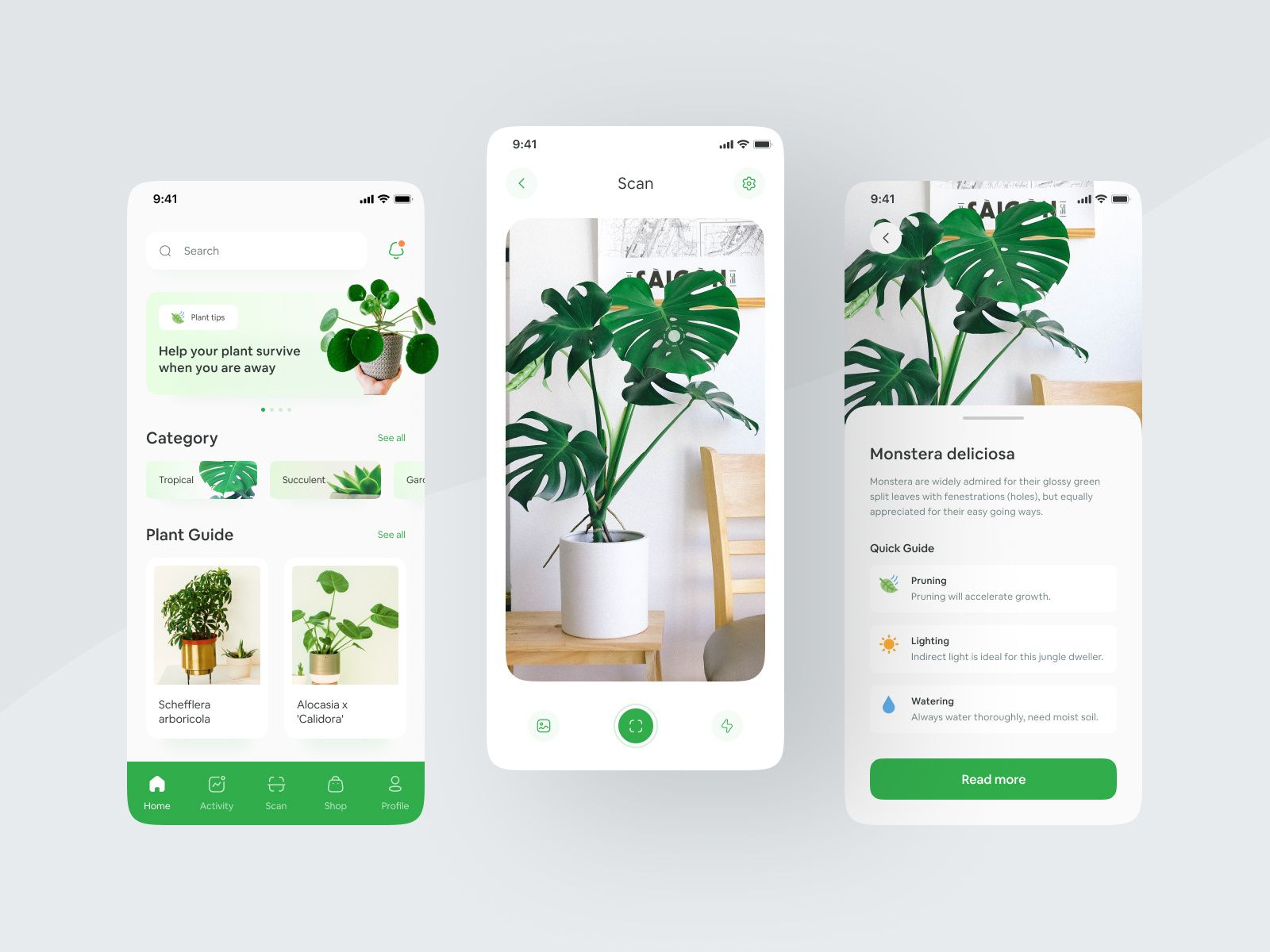
Visual recognition enables the app to categorize, analyze, and extract information from images, offering users a more immersive and interactive engagement with the app's features.
(image by Maulana Farhan)
These technologies can enhance user engagement, provide interactive experiences, and enable new forms of interaction within the app.
One way to use text or audio recognition along with machine learning is to create conversational UX or chatbot. Remember Apple Siri and imagine how excited your users will become if you add something similar to your app.
👁️ Fast and protected authentication process
Machine learning can be used to improve the authentication and security processes in your mobile app. By leveraging technologies like biometric authentication, facial recognition, and behavioral analysis, you can provide a faster and more secure authentication experience for your users. This not only improves user satisfaction but also helps prevent fraud and unauthorized access.
Remember, the easier the authentication process you will make, the more thankful your users will be.
🛡️ Fraud prevention: don’t let your money flow away
Fraud prevention is a growing concern in the mobile app industry. Machine learning algorithms can analyze user behavior, transaction patterns, and other data points to detect and prevent fraud in real-time.
By constantly monitoring and analyzing app activities, you can identify and take action against suspicious activities, protecting your users and your app from potential threats.
One more advantage: traditional apps can resist only already known threats, while machine learning systems allow protecting users from previously unidentified malware attacks in real-time mode. Snapdragon Smart Protect is a good example of such a progressive technology.
🏋️ Turn your fitness app into a personal coach
Machine learning can transform fitness and health apps into personalized virtual coaches. By analyzing user data, such as physical attributes, fitness goals, and workout history, machine learning algorithms can generate customized workout plans, provide real-time feedback, and track progress.
📌 A similar approach can be applied to diet and nutrition app development, enabling users to receive personalized meal plans, track nutrient intake, and get AI-driven recommendations for healthier eating habits.
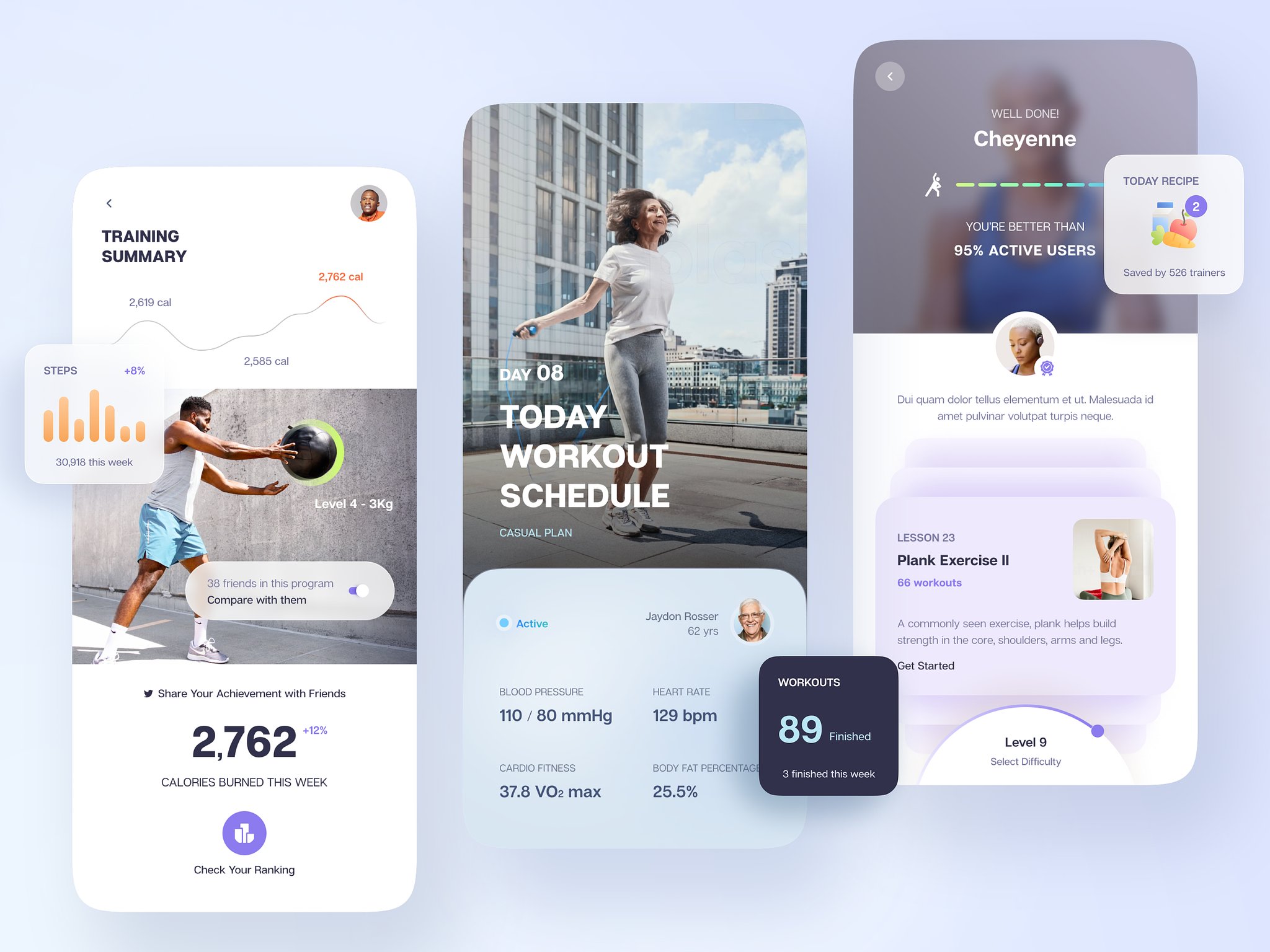
Machine learning's capabilities extend beyond workout plans. It can enhance nutrition tracking by suggesting balanced meal options based on dietary preferences and caloric needs.
(image by Yi Li)
So combining fitness app development services with machine learning is a win-win situation.
💵 Machine learning in financial apps: enjoy several advantages at once
Machine learning is also being applied to security and fraud detection in financial apps to protect user data. Another use case is in customer service and assistance, where chatbots and digital assistants can provide users with a more convenient and personalized experience.
📌 If you want to extend your app experience beyond phones and tablets, our Smart TV app development services make it easy to bring ML features to large-screen living rooms.
⚙️ Tech Stack to use ML in your mobile app
Firebase ML Kit (Google)
Firebase ML Kit from Google offers ready-to-use machine learning APIs that simplify adding intelligence to your app. It includes features like text recognition, face detection, and image labeling, making it an excellent choice for both Android and iOS app developers.
Major benefits: simplicity, cross-platform, support real-time.
Core ML (Apple)
iOS developers can easily include machine learning models into their apps thanks to Apple's Core ML framework. Core ML provides improved privacy, real-time responsiveness, and effective performance since it is tailored for on-device processing and supports a variety of machine learning libraries.
Major benefits: on-device processing, optimized performance, privacy.
TensorFlow Lite (Google)
A powerful framework for implementing machine learning models on Android devices is Google's TensorFlow Lite. It provides a thin and efficient runtime intended to accelerate inference and condense app size. The adaptability and interoperability of TensorFlow Lite make it a popular option for Android developers.
Major benefits: lightweight, cross-platform compatibility, efficient inference.
Azure Cognitive Services (Microsoft)
Microsoft's Azure Cognitive Services provide a suite of pre-built machine learning APIs that enable developers to add advanced capabilities to their mobile apps. These services provide a wide variety of AI functions, ranging from speech and image recognition to language comprehension and emotion identification.
Major benefits: broad range of apis, scalability, ease of use.
IBM Watson (IBM)
An extensive AI platform called IBM Watson provides a variety of tools and services for incorporating machine learning into mobile apps. IBM Watson equips programmers to construct intelligent and user-friendly apps with features like natural language comprehension, image recognition, and predictive analytics.
Major benefits: comprehensive ai platform, customization, enterprise-grade.
Amazon SageMaker (Amazon Web Services)
Amazon SageMaker, part of Amazon Web Services (AWS), is a fully managed machine learning service that allows developers to build, train, and deploy machine learning models. With SageMaker, you can seamlessly integrate ML capabilities into your mobile app hosted on AWS infrastructure.
Major benefits: end-to-end solution, integration with aws, managed service.
H2O.ai
H2O.ai provides an open-source machine learning platform that supports data analysis and model deployment. You can create and implement machine learning models for predictive analytics with H2O.ai, making it appropriate for apps that need data-driven insights.
Major benefits: open-source, predictive analytics, scalability.
📚 Case Study
Participating in our collaboration with LifeBonus, we developed a distinct segment of the application aimed at assisting in elderly care. This feature utilizes artificial intelligence technology to track body movements.
Throughout our efforts, we employed ML Kit for tracking and obtaining coordinates of key points on the body. Subsequently, through a sophisticated analytical process, we evaluate these data points. This feature encompasses around ten exercises. Users will perform these exercises while sitting in front of their phones and receive an effectiveness assessment upon completion.
Looking ahead, we are considering the integration of a "care level" indicator. A higher care level would indicate more complex exercises, signifying a greater need for assistance and supervision. Furthermore, there are plans to train a neural network using this tracking data to autonomously assess users' exercise results.
👂 Takeaways
In conclusion, we hope this article has provided you with a clearer understanding of machine learning and its transformative potential for your mobile app. As technology continues to advance, integrating machine learning into your app can significantly enhance its capabilities and user experience, ushering in a new era of innovation.
To summarize:
- Machine learning's popularity is on the rise, with a plethora of applications already leveraging it across various industries, from streaming services to government establishments.
- Carefully selecting the right technological stack for your app is crucial, especially in the context of machine learning app development. Approach this decision meticulously to ensure a seamless integration of machine learning capabilities.
- Remember that machine learning presents an opportunity to elevate your app, allowing you to establish a foothold in competitive markets. However, while machine learning is a powerful tool, a compelling idea and adept execution remain equally crucial components.
Feel free to reach out to us if you have any lingering questions on this topic or if you need support with leveraging machine learning in your app.


![Stormotion client David Lesser, CEO from [object Object]](/static/93e047dadd367691c604d8ffd1f54b58/b0e74/david.png)

